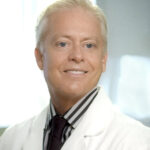Who holds the key to longevity: men or women?
The answer may surprise you. While genetics and hormonal changes play significant roles in the aging process, there are factors within our control that can influence how gracefully we age. Recent studies have revealed a fascinating trend: men tend to age faster than women. By their 50s, male bodies can be as much as four biological years older than females of the same age, according to research published in The Journals of Gerontology: Series A. However, this aging gap between the genders is shrinking over time, with researchers attributing this trend to declining smoking rates among men. This intriguing insight underscores the importance of understanding the complex interplay between genetics, lifestyle choices, and environmental factors in shaping our journey towards healthy aging.
Discover Your Biological Number
In the quest for prolonged youthfulness and vitality, many women seek methods to rewind the biological clock. While genetics and hormonal changes play significant roles in aging, factors within our control, such as lifestyle choices and environmental influences, can profoundly impact the aging process. As we embark on this journey towards healthy aging, it’s essential to arm ourselves with knowledge and tools that empower us to make informed decisions about our well-being.
To begin, it’s important to understand the concept of biological age versus chronological age. While chronological age refers to the number of years we’ve lived since birth, biological age reflects how our bodies are functioning at a cellular level.
Calculating biological age requires specific testing, such as an at-home saliva-based DNA methylation test, which evaluates the methylation patterns of our DNA. These patterns serve as indicators of aging and the potential onset of age-related chronic diseases. By influencing DNA methylation, we can potentially reset our biological age, leading to a healthier, more youthful cell metabolism. Through biomarker testing, such as the TruMe DNA methylation test, individuals can objectively assess the impact of compounds on their biological age in the comfort of their own home.
Lifestyle Choices Matter
While dietary supplements may offer promising benefits in reducing biological age, it’s important to complement these interventions with lifestyle modifications that support overall well-being. Regular exercise, balanced nutrition, adequate sleep, stress management, and cultivating social connections are key pillars in the pursuit of healthy aging. By prioritizing these lifestyle choices alongside evidence-based supplementation, women can empower themselves to age gracefully and embrace a future filled with vitality and longevity.
Additionally, focusing on three key lifestyle habits is paramount. Adequate sleep stands as a cornerstone, offering the opportunity for the body to undergo essential repair and regeneration processes, potentially reversing biological age. Similarly, effective stress management through practices like meditation, mindfulness, or yoga is helpful, as it can significantly lower chronic stress levels and positively impact biological age. Finally, nurturing social connections and cultivating meaningful relationships play a key role, as studies suggest that a robust social network can contribute to a longer, healthier life and potentially even reduce the effects of aging.
By prioritizing these vital aspects of well-being, women can embark on a journey towards a vibrant and fulfilling life that defies the limitations of time.
 Dr. Francis Palmer is a world-renowned, board-certified facial plastic surgeon, and author of What’s Your Number? with more than three decades of practical experience in medicine. He consults as chief medical officer for Ponce de Leon Health, the makers of Rejuvant, a company dedicated to developing drug-free solutions scientifically proven to extend overall longevity, while simultaneously increasing healthspan and reducing biological age for better health. An honors graduate of San Diego State University, Palmer received his medical degree from the University of California – Irvine. Following his residency at USC-LA County Medical Center, he completed a fellowship with the American Academy of Facial Plastic and Reconstructive Surgery and is board certified in that specialty.
Dr. Francis Palmer is a world-renowned, board-certified facial plastic surgeon, and author of What’s Your Number? with more than three decades of practical experience in medicine. He consults as chief medical officer for Ponce de Leon Health, the makers of Rejuvant, a company dedicated to developing drug-free solutions scientifically proven to extend overall longevity, while simultaneously increasing healthspan and reducing biological age for better health. An honors graduate of San Diego State University, Palmer received his medical degree from the University of California – Irvine. Following his residency at USC-LA County Medical Center, he completed a fellowship with the American Academy of Facial Plastic and Reconstructive Surgery and is board certified in that specialty.




















